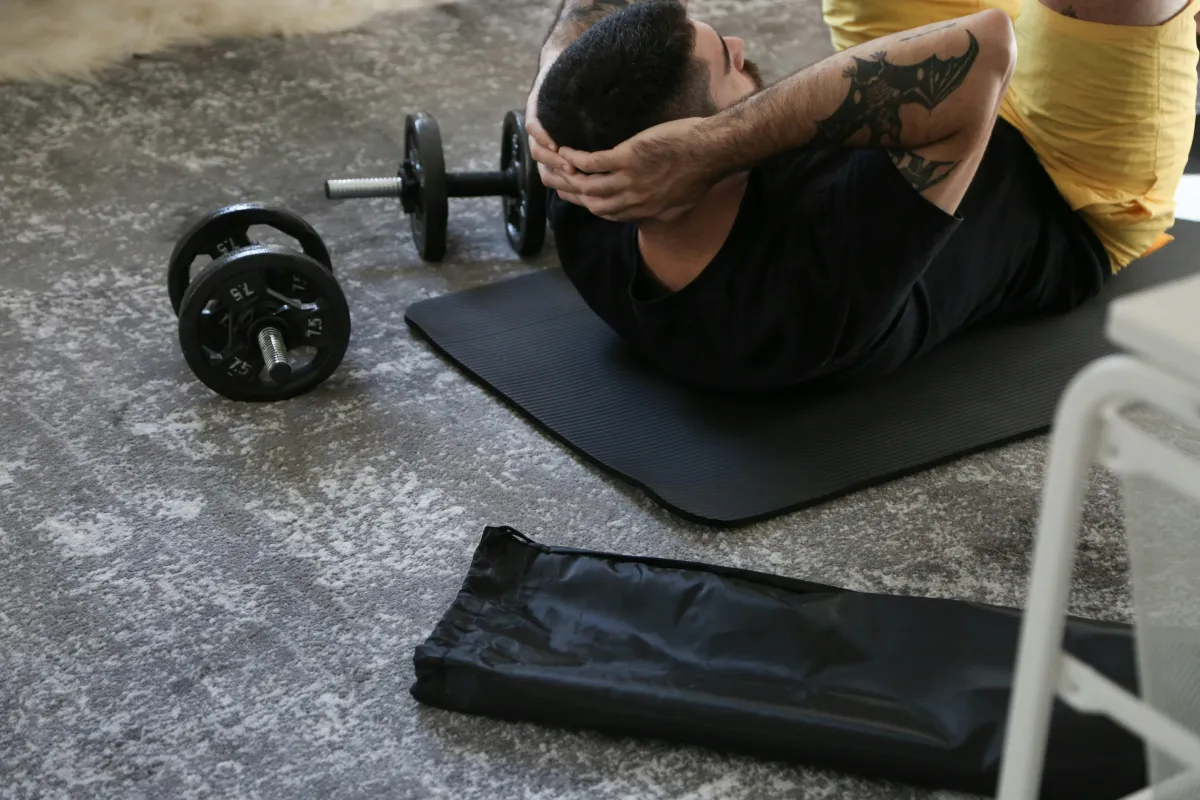OUR BLOG

The Importance of Balanced Fitness: Combining Strength, Cardio, and Flexibility
When it comes to fitness, many people tend to focus on just one aspect—whether it's lifting weights, running miles, or stretching. However, a truly effective fitness regimen incorporates all three core components: strength, cardio, and flexibility. Each of these areas plays a crucial role in maintaining physical health and well-being, and combining them offers numerous benefits for both your body and mind.
Strength Training: Building Muscle for Better Health
Strength training is often seen as the cornerstone of any fitness routine. It's not just about bulking up; it's about improving muscle strength, boosting metabolism, and enhancing overall body functionality. Whether you're lifting weights or using bodyweight exercises like squats and push-ups, strength training offers a wide range of benefits:
Improved Muscle Mass: As we age, we naturally lose muscle mass. Strength training helps counteract this, leading to better muscle tone and strength.
Bone Health: Weight-bearing exercises strengthen bones, reducing the risk of osteoporosis and fractures.
Metabolic Boost: Building muscle helps increase your resting metabolism, meaning you burn more calories even when you're not working out.
Injury Prevention: Stronger muscles help protect your joints and tendons, reducing the likelihood of injury during other physical activities.
Incorporating strength training into your routine can be as simple as doing a few sets of bodyweight exercises, or you can invest in home equipment like dumbbells, resistance bands, or kettlebells to add variety and challenge to your workouts. If you're looking for high-quality fitness gear to help with your strength training at home, check out PisFitness, where you'll find a range of products designed to enhance your training experience.
Cardiovascular Exercise: Keeping Your Heart Healthy
Cardio exercises, such as running, cycling, swimming, or even brisk walking, focus on improving the efficiency of your heart and lungs. Cardiovascular fitness is essential for overall health, and regular cardio sessions offer several key benefits:
Heart Health: Regular cardio strengthens the heart, lowers blood pressure, and reduces the risk of heart disease.
Weight Management: Cardio exercises burn calories, helping to maintain or lose weight when paired with a balanced diet.
Mental Health: Cardiovascular activity releases endorphins, which can reduce stress, anxiety, and depression.
Improved Stamina: As you engage in regular cardio, your endurance increases, making everyday activities feel easier and less taxing.
Incorporating cardio into your routine doesn’t mean you need to run a marathon. Aiming for at least 150 minutes of moderate-intensity aerobic activity per week can have a significant impact on your heart health and overall well-being.
Flexibility Training: Enhancing Mobility and Recovery
Flexibility is often overlooked in fitness routines, but it’s just as important as strength and cardio. Stretching and flexibility exercises help to improve range of motion, reduce muscle tension, and increase blood flow to your muscles. Some key benefits of flexibility training include:
Better Mobility: Flexibility exercises help improve joint range of motion, making it easier to perform everyday tasks without strain.
Improved Posture: Stretching muscles helps correct imbalances caused by tightness, improving posture and alignment.
Faster Recovery: Stretching helps reduce muscle soreness and accelerates recovery time after intense workouts.
Injury Prevention: A flexible body is less prone to strains and injuries, especially during high-intensity activities like running or weightlifting.
Flexibility exercises can be incorporated through dynamic stretches before a workout or static stretches afterward. Yoga and Pilates are great options for improving flexibility, as they combine stretching with breathing techniques to help reduce stress and enhance mental focus.
Why Combining Strength, Cardio, and Flexibility is Key
Each aspect of fitness—strength, cardio, and flexibility—offers unique benefits, but together, they form a balanced approach that maximizes overall health. Here’s why combining them is crucial:
Improved Performance: A balanced routine leads to better overall fitness performance. Strength training boosts your ability to do cardio, and cardio enhances your endurance during strength workouts.
Injury Prevention: Strength exercises help prevent injury, but flexibility is crucial for maintaining joint health and mobility. Cardio can also support muscle recovery by improving circulation.
Long-Term Results: A well-rounded fitness routine can help you achieve long-term health benefits such as a stronger immune system, better mental health, and a reduced risk of chronic diseases like diabetes and hypertension.
By including strength training, cardio, and flexibility exercises into your fitness routine, you create a balanced approach that targets every aspect of your physical health.
How to Get Started
It’s easy to start combining strength, cardio, and flexibility exercises into your workout routine. Aim to create a schedule that incorporates each component multiple times a week. For example:
Strength Training: 2-3 times per week (e.g., bodyweight exercises or weightlifting)
Cardio: 3-5 times per week (e.g., running, cycling, or swimming)
Flexibility: Daily stretching or yoga (10-15 minutes after workouts)
If you're unsure where to start or need equipment to support your routine, consider exploring options at Pis Fitness for a variety of fitness gear designed to help you reach your goals.
One or more of the links above are affiliate links, meaning, at no additional cost to you, we will earn a slight commission if you click through and make a purchase. Each of these products is chosen by a trusted member of our team.
Email: partnerships@zenoviawellness.com
: @zenoviawellness
: Zenovia Wellness
